Cathkin Blazes Community Football Club co-founder. Created and led trauma-informed outreach sessions for survivors in 2023
Football for everyone
Football might be Scotland’s national game but women, non‑binary and trans people still face barriers to playing. Facilities are limited, opportunities are scarce, and many adults encounter social and cultural obstacles. from discrimination like sexism, homophobia or transphobia, to health and wellbeing challenges linked to periods, pregnancy, menopause or gender‑affirming care.
For adults, affordable and welcoming options are rare unless you’re already playing at a professional level. Gyms can be expensive, running doesn’t feel safe for everyone and there were no beginner‑friendly or casual football groups to join in our local area.
That’s why we set out to create a space where people could try football in a fun and supportive way: we made a place to connect with others, build confidence and feel part of a community.
Process
My role as a postcode co-ordinator for Glasgow Mutual Aid developed when Covid restrictions eased and requests for food parcels and other delivery requests slowed down, but there was a desire to (re)connect with the local community.
Glasgow Mutual Aid did not have funding for activities, but the group had built a lot of connections to organisations in the local area. Football was an inexpensive activity to run because it was possible to start football sessions with a volunteer coach in the local park and didn't require equipment. The football sessions were free, gender inclusive and open to any fitness level / ability, they were promoted through local partner organisations.
Impact
Membership of Cathkin Blazes Community Football Club grew rapidly, and the group now has over 200 members. In addition to weekly, free training sessions, the group's events and activities include walking football, Roma womens' sessions (Community Renewal), partnering with Tennents for a community fundraiser, and Football for Survivors.
The group has always aimed to have an impact beyond football, 88% of respondents to our members' 2024 survey agreed that being part of Cathkin Blazes increased their connection to other people in the local area. Members of the group organise social activities, fundraisers and even a book club!
Part of my role has involved raising the profile of Cathkin Blazes Community Football Club in the public eye. I appeared on BBC Scotland’s A View From the Terrace, where I shared the story and ethos behind the club, highlighting our work with survivors and our commitment to inclusive football. This media feature helped amplify our message and connect with wider audiences across Scotland.
These appearances helped position Cathkin Blazes as a model for inclusive, trauma-informed sport, and contributed to growing interest in our survivor sessions and community-led approach.
Cathkin Blazes on BBC Scotland's A View from the Terrace:
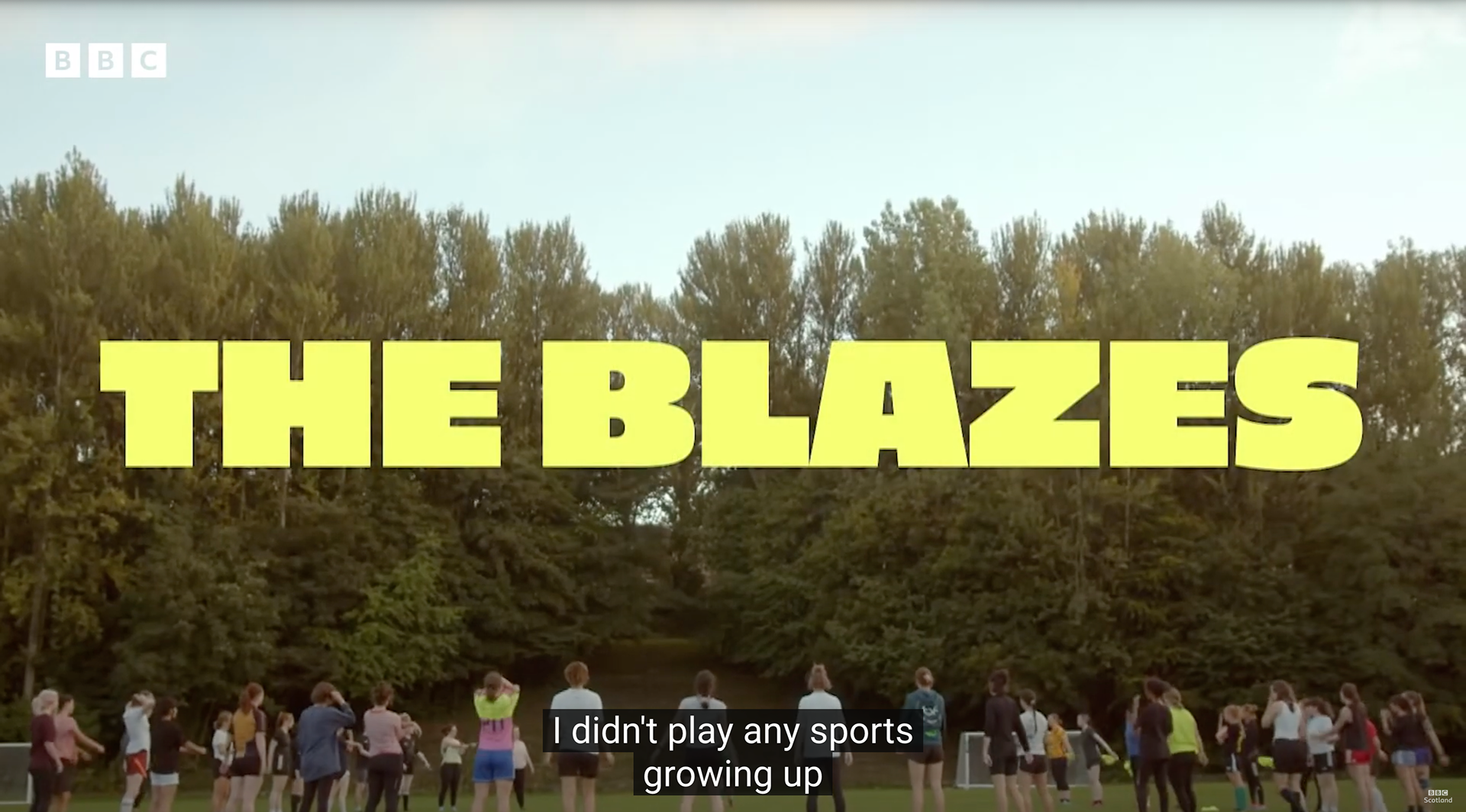
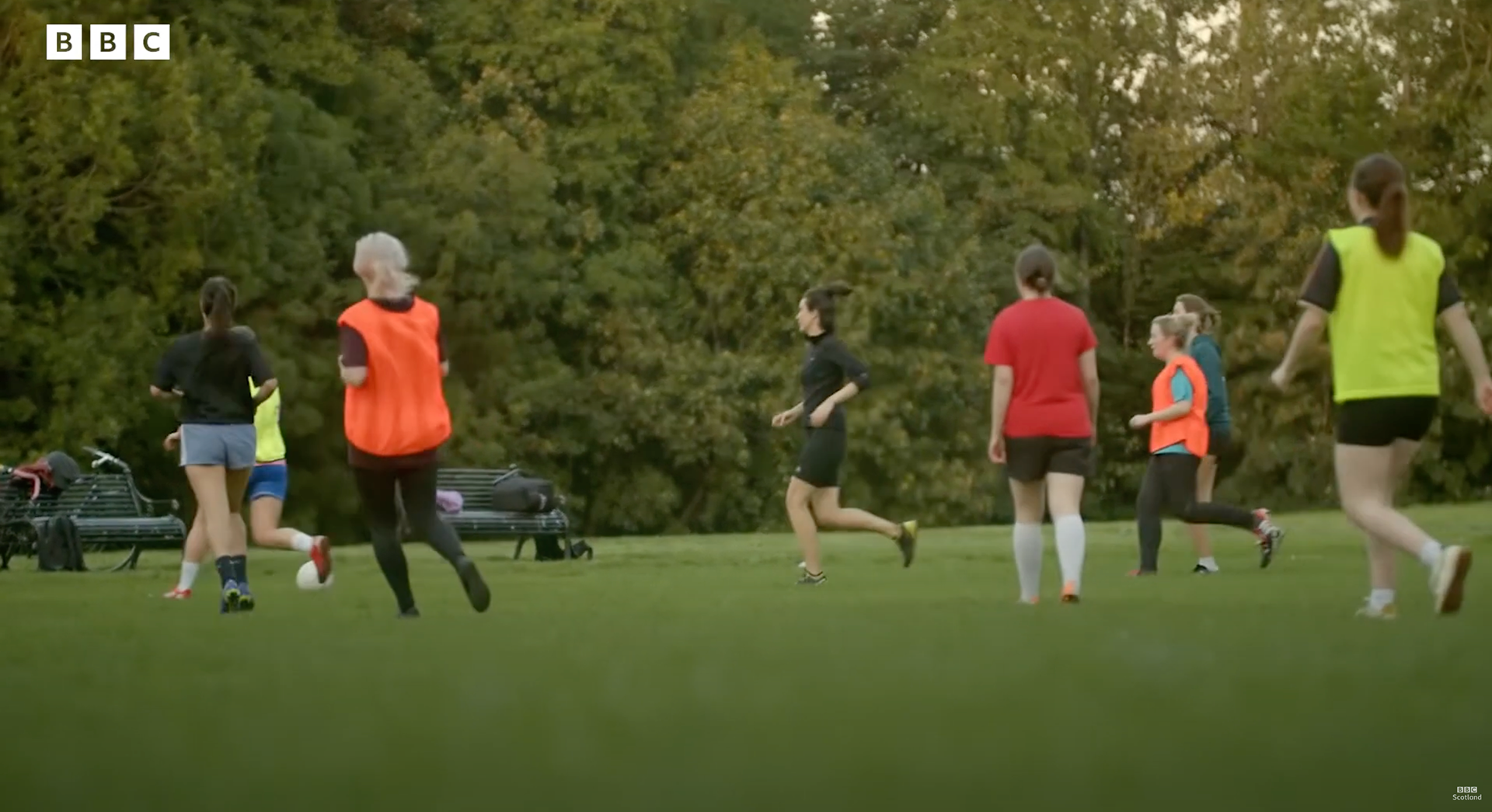
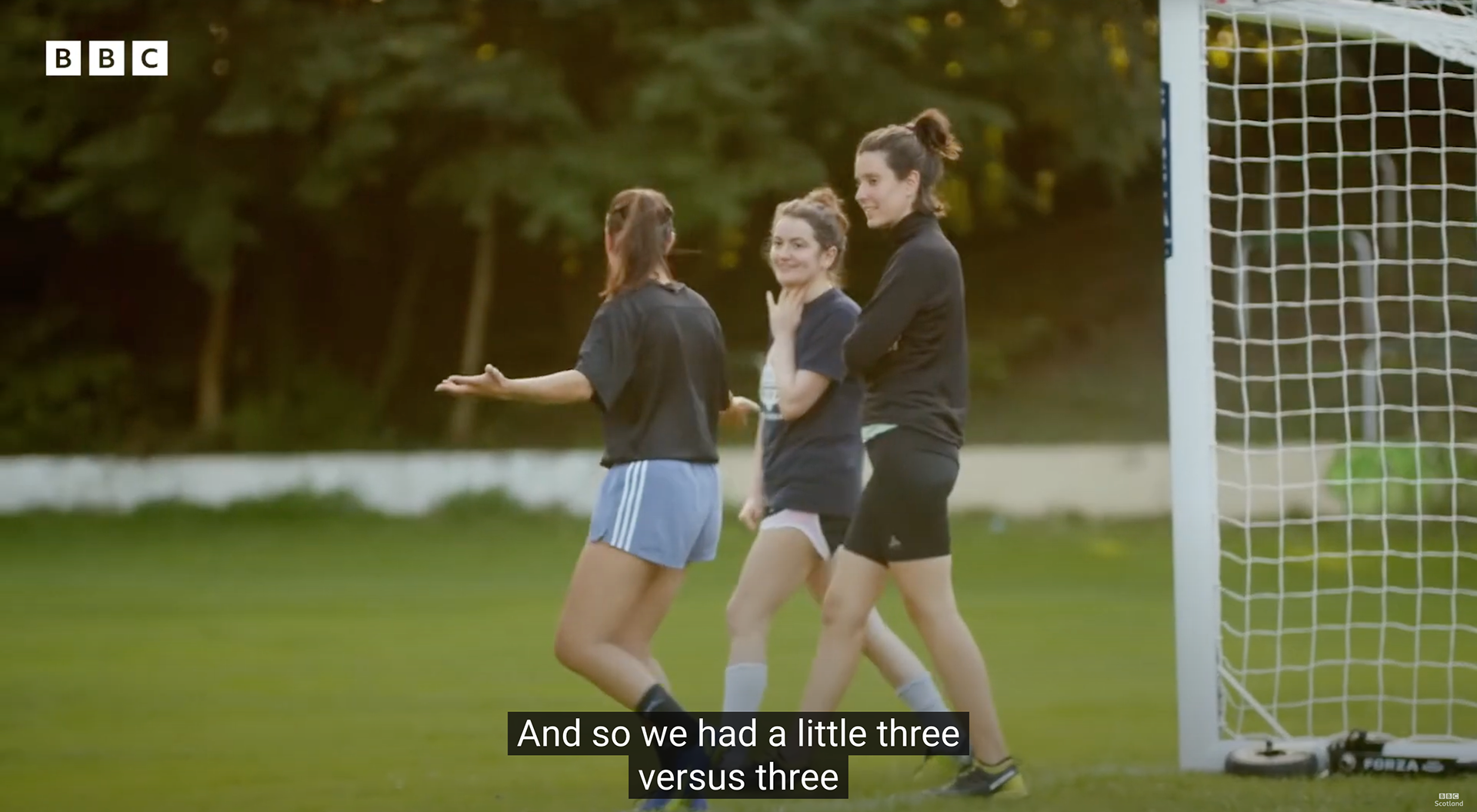
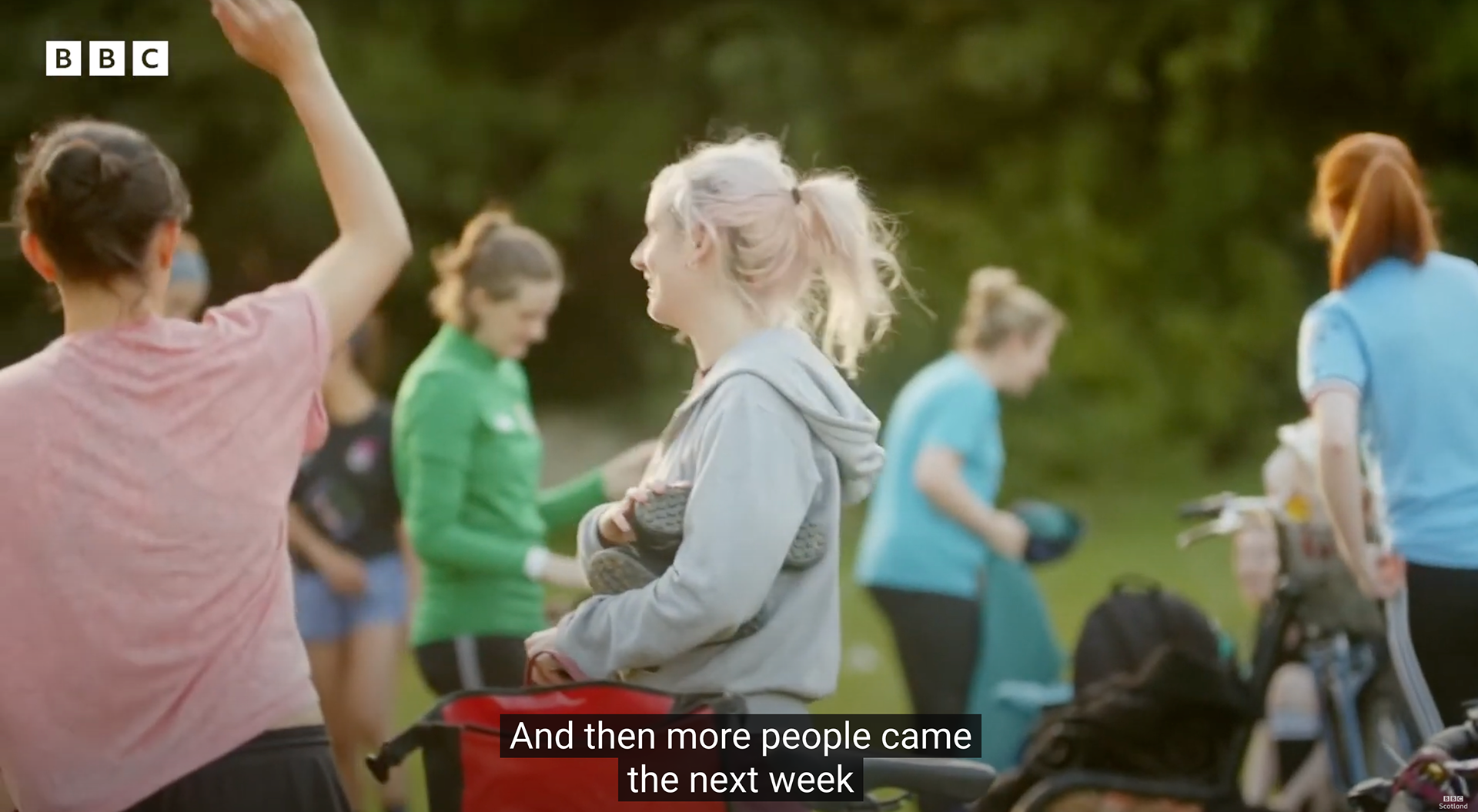
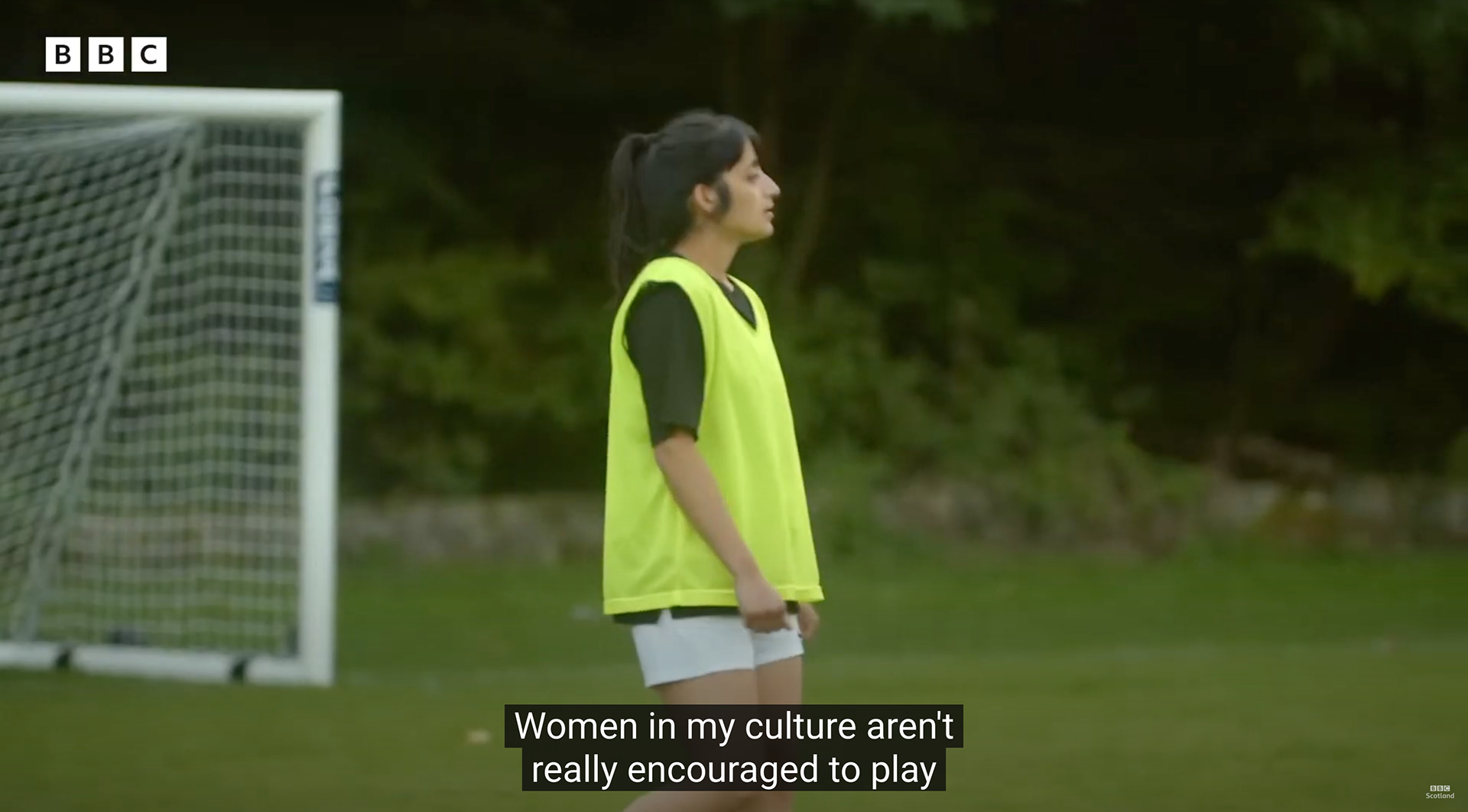
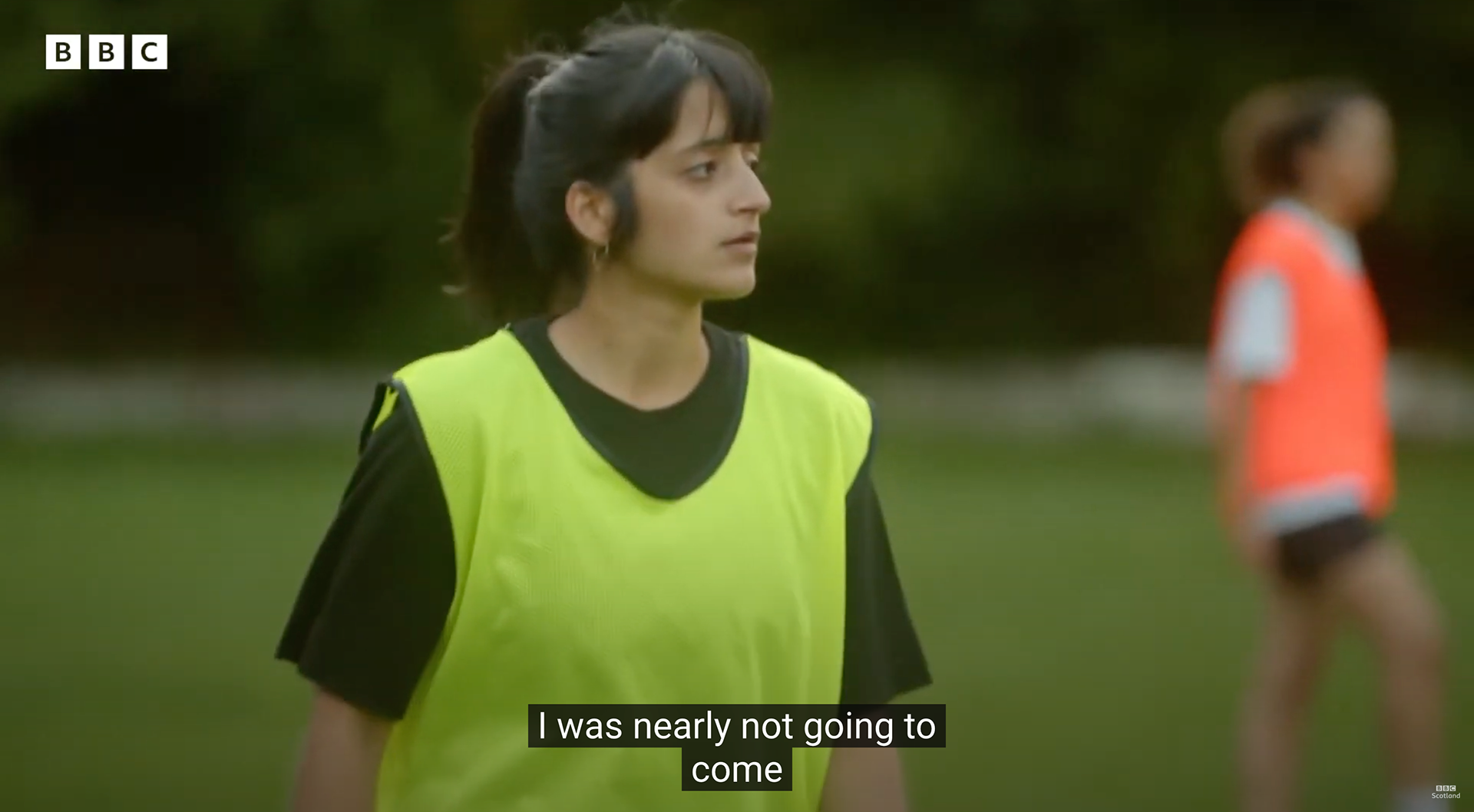

Football for Survivors
Challenges
Playing football showed me how powerful it can be as a therapeutic tool. For people who’ve experienced violence, it’s common to feel disconnected from your body, isolated from others and unsure how to process anger in healthy ways. Cathkin Blazes became a space to work through those challenges. Being part of a team improved wellbeing and helped build stronger social connections across the community.
Many rape support services are designed only for women, leaving trans and non‑binary people without the same access. While activities like yoga or crafts can be valuable, they often reinforce gendered expectations around healing. Football offers something different: a chance to reclaim a traditionally male‑dominated space and reconnect with the body through movement that isn’t framed as feminine.
Gender‑based violence can also bring practical barriers: declining health from becoming isolated and financial hardship from things like lost income, relocation or legal costs. In that context, a free, community‑based group that fosters connection and peer support can make a real difference.
Process
The survivor sessions used the same mix of drills and games as our regular training, but we adapted the promotion, structure, and support to meet participants’ needs.
We didn’t include talking therapies, but after consulting with another survivor‑led group, we brought in a support worker to be present. I led a team of volunteers with clear roles focused on participant support and accessibility.
To help people feel comfortable joining, we hosted online information sessions, offered phone check‑ins, and addressed access needs like transport or equipment. My own lived experience shaped the design, I identified moments that could trigger anxiety and made targeted adjustments to reduce barriers.
A trauma‑informed approach was essential. We continuously adapted the sessions to ensure safety, emotional wellbeing, and inclusivity for everyone.
Impact
The survivor‑focused football sessions have had a lasting impact on individuals and on Cathkin Blazes as a whole. One participant from last year’s programme now serves as this year’s support worker, keeping lived experience at the centre of the sessions.
The sessions created a safe, inclusive space for people who had felt isolated due to gender‑based violence. Participants built friendships, reconnected with their community, and engaged in sport in ways that felt empowering. From the first cohort, three people joined the club’s committee, five now play competitively, and many continue to attend regular training. Feedback showed that everyone wanted to keep playing, and most reported greater confidence in social settings.
Designed in consultation with survivor‑led projects, the sessions followed the format of typical football training but added a support worker and trauma‑informed practices to create emotional safety. The programme showed that football can be a therapeutic alternative to traditional wellbeing activities, especially for those excluded from gendered services.
Beyond individual outcomes, the sessions strengthened the club itself. Cathkin Blazes now has more than 20 committee members, with regular feedback shaping how it runs. The programme also tackled barriers to sport access (cost, lack of experience, and low fitness levels) while providing inclusive support for trans and non‑binary participants, filling a gap left by mainstream services.